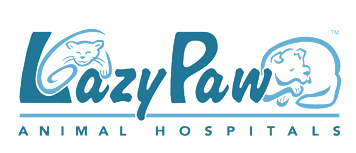When a child has a fever or is in pain, a few children’s Tylenol or Advil can help them feel better fast. However, though animals are also small, they should never have over-the-counter (OTC) pain medication.
OTC pain meds may be fine for humans, but they can be deadly to animals. This includes anti-inflammatory NSAIDs (non-steroidal anti-inflammatory drugs), Aleve (naproxen), and aspirin. More mild pain relievers including acetaminophens such as Tylenol are equally harmful to both dogs and cats.
If OTC meds are dangerous for animals, why did my vet prescribe them?
Some of these medications can be given to animals, but only under strict instructions from your local animal hospital. Animals overdose easily on OTCs, so doctor’s orders should be followed to the letter.
Aspirin may be used to treat pain for both dogs and cats, but cats are especially sensitive to aspirin because they don’t have enough enzymes to metabolize aspirin well. Acetaminophen may be prescribed for dogs (never cats), but they also do not metabolize the medication easily. Signs of overdose include vomiting, diarrhea, and stomach ulcers. The animal may also suffer from liver failure, lethargy, bruising, or bleeding.
Ibuprofen and naproxen are poisonous to both dogs and cats because they cause kidney failure. The animal will become thirsty and urinate often, but ultimately become dehydrated and die as kidneys shut down.
Don’t rely on the Internet to try to determine your pet’s ideal dosage for any medication. Listen to your family veterinarian for advice—they know your animal as well as her medical history and are the best resource for reliable help and information.
What should I do if my dog or cat eats over the counter medications?
If your dog or cat has eaten any of these medications, call your animal hospital immediately. Your animal surgeon can estimate the medication dosage and tell you what to do next. The doctor will likely advice you to induce vomiting, whether at home or at the pet clinic. Only induce vomiting in your animal if the veterinarian says to do so, since medication that has been ingested for more than one hour may have already caused ulcers, which will only be exacerbated by vomiting.
If you don’t know when your pet ate the medicine or how much they ingested, your vet will probably run blood work to find out if there is kidney or liver damage. The doctor can then determine how severe the damage may be and administer appropriate treatment.
If you think your pet has swallowed any OTC medication, call your vet! If you’re in the Frisco area, LazyPaw Animal Hospitals is always here for you.
